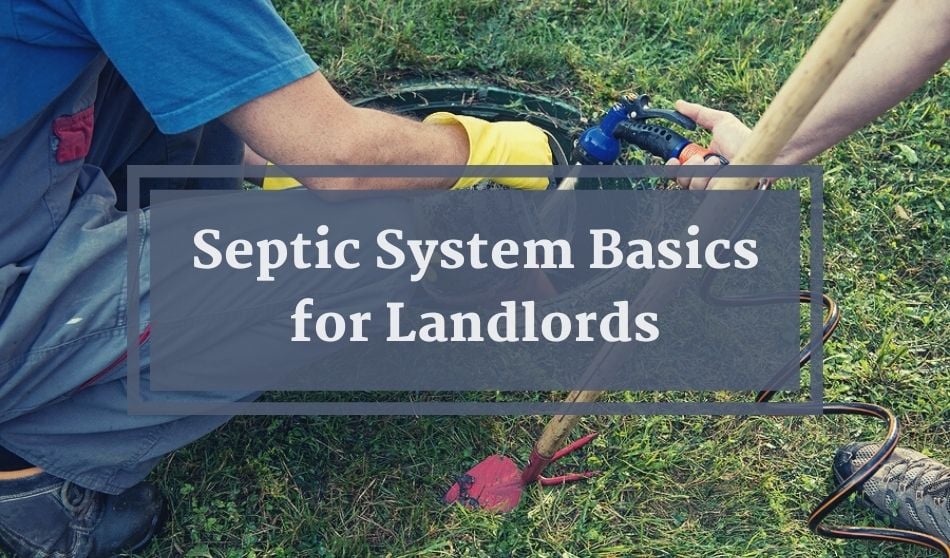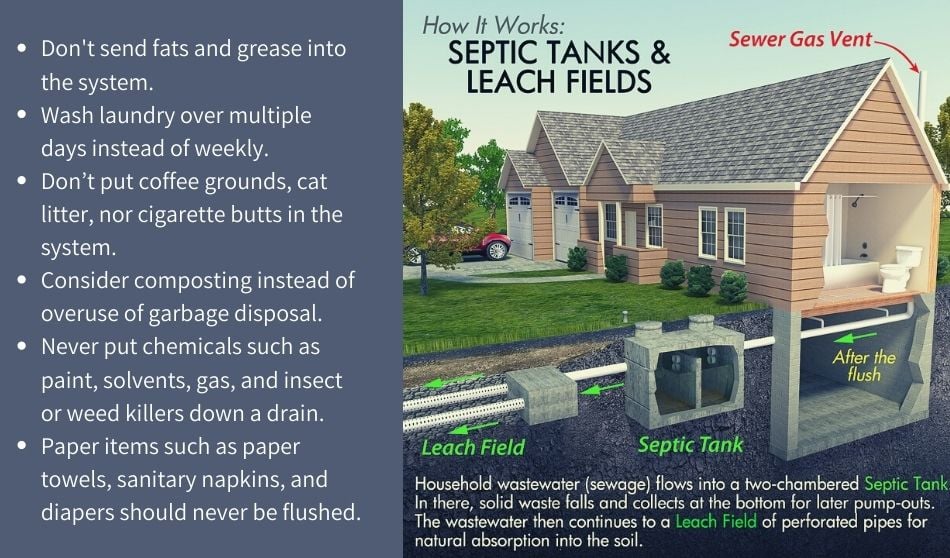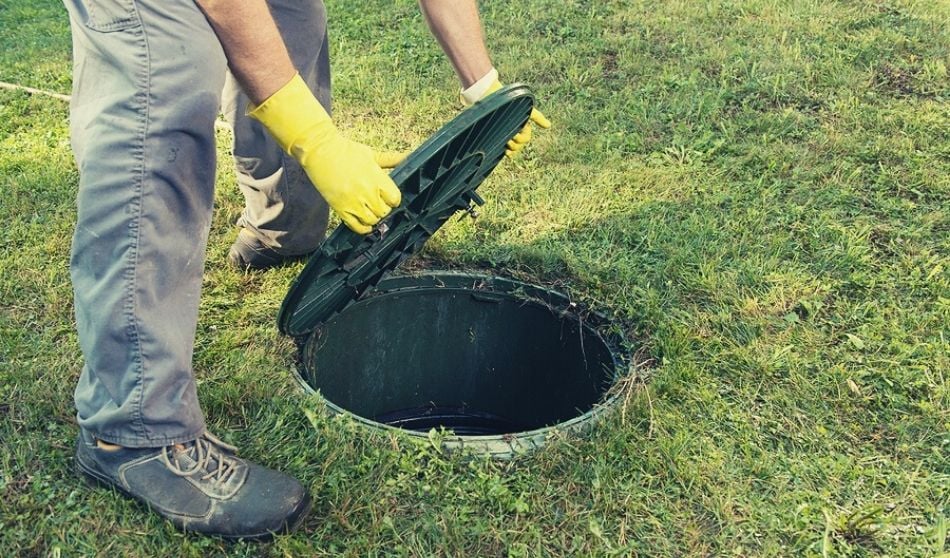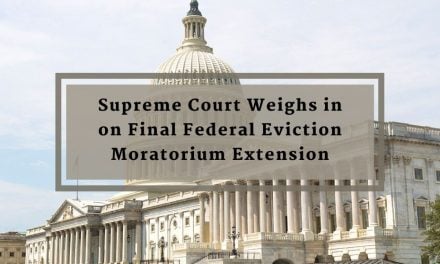
Is your property connected to a septic or sewer line? Have you maintained a septic system in the past? If you’re not familiar with the difference or have never maintained a septic system, then understanding septic system basics can help.
We rarely think twice about the water and waste exiting our homes; especially if connected to a municipal sewer system which magically takes away all the outgoing material. A septic system, however, requires consideration in terms of costs and maintenance, and the need for landlords and tenants to work together to share in the care of the system.
What is a Septic System
Unlike a municipal sewer system that transports waste and wastewater offsite to a centralized location for processing, a septic system processes the exiting material on the property.
According to the Environmental Protection Agency (EPA), there are at least 10 types of septic system designs and configurations, namely:
- Septic Tank
- Conventional System
- Chamber System
- Drip Distribution System
- Aerobic Treatment Unit
- Mound Systems
- Recirculating Sand Filter System
- Evapotranspiration System
- Constructed Wetland System
- Cluster / Community System
More information about the above septic system types and a comprehensive septic system guide from the EPA can be found here: Learn About Septic Systems | EPA
Although they may have different configurations, all septic processes have the same basic characteristics (pipes, tanks, prepared soil) and purpose: to dispose of waste and wastewater in an efficient and ecologically friendly manner.
How a Conventional Septic System Operates
All waste and wastewater exit the property from the main drainage pipe to a buried septic tank. The tank may have one or multiple chambers but all tanks are designed to hold the incoming material safely while it separates — the solids fall to the bottom (sludge), grease and oily material (referred to as scum) float to the top, and wastewater (also called effluents) leave the tank.
The wastewater makes its way through exit pipes from the septic tank to a leach field or drain field where it filters down into the soil. That filtering process naturally removes the bacteria and viruses before it discharges into the water table.
The solids and scum will need to be periodically pumped out.

Why Septic Maintenance is Important
Without proper care, a small septic issue can turn into a catastrophe that consumes your time and eats away at your profits. Here are the main septic maintenance tasks to add to your maintenance plans:
Inspections
Routine inspections inform you when there are concerns that need to be addressed such as pumping, cleaning, or repairs before they become a serious problem costing you thousands to tens of thousands to correct.
Pumping and cleaning
There are many factors that determine when your septic tank pumping will be required. According to inspectapedia.com these are the factors inspectors will note to help determine the septic pumping timing recommendation:
- Scum layer thickness
- Sludge layer thickness
- Capacity of the septic tank
- Volume of wastewater
- Amount of solids in wastewater
- Septic tank retention time
Repairs
The best practice is to always jump on minor repairs before they become a large calamity. Hopefully, if you’ve followed routine inspections and pumping and cleaning you can avoid repairs.
Inspections and cleaning are within your control but there are other factors to maintaining a healthy and working system that we’ll address below.
Septic tank service or septic tank pumping requires certified technicians to come out. To find the best septic tank service quickly on the internet try one or all four of these search terms and be sure to read their reviews when choosing the right septic system service provider:
- Septic service near me
- Septic tank cleaning near me
- Septic tank pumping near me
- Septic pumping near me

Tenants and a Septic System
Just as you might not have been familiar with septic systems, it’s likely your tenants may not be familiar as well. One way to evade repairs is to communicate the best practices of living in a property with a septic system with your tenants often. This list is not exhaustive but here are some common tips to share with your tenants.
The general rule of thumb: if it’s not quickly biodegradable, don’t put it in the septic system (drains, toilets, or garbage disposals).
- Avoid putting fats and grease into the system.
- Do laundry over the course of the week and not all on one day.
- Don’t put coffee grounds, cat litter, nor cigarette butts in the system.
- Consider composting instead of overuse of garbage disposal.
- Never put chemicals such as paint, solvents, gas, and insect or weed killers down a drain.
- Paper items such as paper towels, sanitary napkins, and diapers should never be flushed.
What Can Cause a Septic System Failure
Other factors can cause a septic system failure besides grease and non-biodegradable items being sent through the septic system, such as extreme weather conditions.
Heavy and torrential rains, flooding, blizzards, and snowstorms might overburden a leach field and can cause sewer backup; especially if the system has not been maintained routinely.
But it might not take a catastrophic storm to cause a backup or failure — it could be a water leak pushing too much water into the system and/or drainage field. So, it’s important to not only have your septic system inspected routinely but also have your plumbing inspected as well.
Don’t forget to check your landscaping as well. Shrubs and tree roots can cause damage to plumbing as well as could cause a clog in a leach field.
Questions Before you Invest in a Property with a Septic System
Mobile home parks, RV parks, rural housing, and other property types often use septic systems for waste management. If you’ve never invested in a property with a septic system, it’s important to ask good questions such as:
- When was the septic installed?
- What type of septic system is installed?
- Do you have a map of the system?
- When was the last time the septic tank was inspected?
- Can I see a copy of that septic inspection report?
- Do you have a maintenance log of all the inspections?
- May I see that log and all inspection reports?
- Can you show me the components of a septic system and the borders of the leach field?
- Has the septic ever failed, why, and what was done to repair it?
- Has the plumbing system ever failed, why, what was done to repair it, and did it affect the septic?
In Summary
As a landlord or investor, keep in mind the costs to maintain those septic tanks, septic systems, and plumping when you calculate your market rents. Your insurance carrier will know if plumbing and septic issues are covered for tenant habits, flooding, and plumbing issues. And, communicate with your tenants on the benefits of helping you maintain a healthy septic system and how they can help your efforts. Knowing the basics can help you determine if investing in a property with a septic system is right for you.






Thank you for this! A typical septic tank pumper truck hose is 3 inches in diameter, and septic pumper trucks use powerful pumps that can even suck up small rocks as well as removing the floating scum layer and settled sludge layer in a septic tank.
Yvette, thank you for your insights and taking the time to share this information.
Thank you for elaborating on how septic tanks need to be pumped on a regular basis in order to function correctly. The house that I bought last month has a septic tank, so I’ll have to remember to hire someone to pump it in the future. I’m going to search for a reputable provider of septic tank pumping services in the area that I can use.
Hi William, Glad you found it helpful!
This blog post serves as an excellent guide for landlords, property managers, and investors regarding septic system basics. It covers important aspects such as understanding the system, routine maintenance, and tenant education. The information provided is comprehensive and presented in a clear and concise manner, making it easy to grasp for readers. I appreciate the inclusion of practical tips and best practices for ensuring the proper functioning of septic systems. By emphasizing the significance of regular inspections and addressing potential issues promptly, this article equips property professionals with valuable knowledge to manage septic systems effectively. Overall, a highly informative and useful resource!
This blog post serves as a valuable guide for landlords, property managers, and investors on septic system basics, complemented by practical tips and best practices. It emphasizes the importance of routine maintenance, tenant education, and the significance of regular inspections. For seamless management, landlords and property managers can consider employing sewer septic cleaning services ensuring effective upkeep of septic systems.
This blog post serves as a valuable guide for landlords, property managers, and investors on septic system basics, complemented by practical tips and best practices. It emphasizes the importance of routine maintenance, tenant education, and the significance of regular inspections. For seamless management, landlords and property managers can consider employing sewer septic cleaning services, ensuring effective upkeep of septic systems.